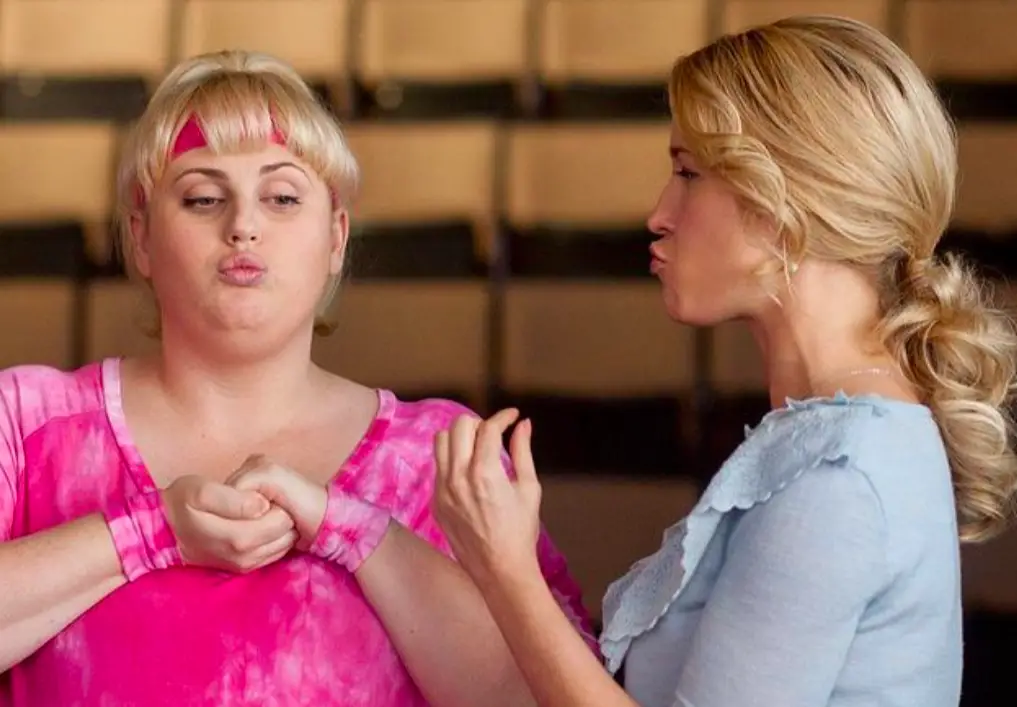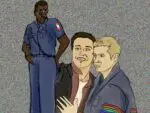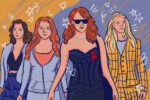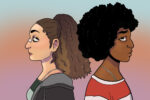Stereotypes are unfortunately very common in portrayals of underrepresented peoples in books, video games, movies and television shows. Thus, whatever makes them different from represented groups becomes their only personality trait, and they often feel more like caricatures than characters. One such underrepresented group suffering from stereotyping is the fat community with the commonplace funny fat friend trope.
The funny fat friend trope occurs when the friend of the main character is — you guessed it — fat and funny. But that’s it. There’s often nothing else to them. They’re overly aware of their weight and use it as the punchline for jokes, mainly concerning how they’re always hungry. A mocking tone associates itself with the entirety of the character, which may potentially make fat audiences members feel insecure. An explanation from the TV Tropes Wiki page states, “A possible reason for this trope’s existence is a desire to be more realistic and less discriminatory by showing that not everybody in the world has a generically attractive body shape … but still avoid having a fat main character.” But many agree such a lazy attempt does more harm than good.
Bad Representation
The funny fat friend trope exists in several different media formats, a recent example being Fat Amy from “Pitch Perfect.” Examples from the early 2000s include Fat Monica from “Friends” and part of Regina George’s character arc in “Mean Girls.”
A simple glance at Fat Amy and Fat Monica’s names will tell you all you need to know about them and their purposes. In an article titled “Funny Fat Friend Trope Loses Appeal,” Lillie Busch explained, “Fat Amy literally referred to herself as fat before the other women could do the same. Fat Monica served no other purpose than to provide comedic relief and to act as light, zero-calorie character growth.” The writers made it clear from the moment these women were introduced their bodies were all they were worth. They weren’t going to let their audience see the women as anything more than their weight.
The mocking nature of the funny fat friend stereotype also reinforces the belief that fat people should never be taken seriously. The funny fat friend serves as an object of ridicule and never contributes anything meaningful to the actual plot or main characters. They are only ever there to provide comedic relief.
The negative connotation attached to the word “fat” also adds to the problem, and it’s a major reason why fat characters usually wind up portrayed as a joke. A Medium article elaborated on this. “‘Getting fat’ is routinely used as the worst thing that can happen to anyone … That’s how the popular people become worthless, right?”
The 2004 cult-classic “Mean Girls” includes such an arc with mean-girl leader Regina George. In the film, main character Cady Heron sabotages George by feeding her Kälteen Bars — nutrition bars designed for weight gain — and tells her they’re nutrition bars designed for weight loss. (For context, George is trying to lose a few pounds so she can fit into a prom dress.) George’s popularity greatly decreases when she no longer fits into her clothes. Thus, she must resort to wearing baggier outfits, like sweats. Medium’s article holds its own weight when considering plots like George’s.
Baby Steps
The fat character Wedge from the Final Fantasy VII gaming franchise features both good and bad characterization. He serves as a member of the resistance group Avalanche, which opposes the big, bad corporation of the series, Shinra. Wedge acts as the diplomat, “gathering information and placating rival groups using his impressive list of contacts and personal charm,” according to his Game8 character profile. Thus, he plays a major role in the group’s success and the story itself.
Wedge’s character isn’t as noticeably offensive as other characters who fall into the funny fat friend trope; it’s great that he plays a vital role in the game’s plot and isn’t just there for comedic effect. However, his dialogue still relies heavily on food, and his other personality traits are largely associated with the trope. Therefore, Wedge’s characterization still defaults to mocking stereotypes of fat characters.
A Possible Antithesis
Luckily, the recent and exceedingly popular “Six of Crows” duology by Leigh Bardugo includes Nina Zenik, a badass fat woman who plays a vital role in the novels. Nina is interesting, complex and has a well-developed romance and a charming personality. Importantly, she’s also confident and sex-positive — a complete antitheses to the stereotypical clumsy and awkward traits of the funny fat friend trope.
She still talks about and enjoys food, but not in a way that mocks her own character or makes her the butt of the joke. Even when she does mention food, none of the other characters laugh at her or tease her about her weight. They treat her like a human and friend, which is what plus-sized audiences want.
However, some controversy surrounds Zenik’s casting in the 2021 “Shadow and Bone” television show adaptation, which includes the characters from the “Six of Crows” duology. Danielle Galligan was cast to play Zenik, and while she certainly exemplifies Zenik’s personality, she is not the plus-size actress many audiences were hoping for.
Some argue there is a difference between being curvy and being plus-sized. While it’s nice to see a curvy actress in a major role, many hoped for the actress to fall more into the plus-sized category. In her video on Zenik’s casting, YouTuber Charley Ann presented fan art and quotes from the books to support her argument for why a non-straight-sized actress should’ve been cast in the role. Ann acknowledged that a character’s appearance is ultimately up to interpretation, but she also explained why seeing a plus-sized actress on-screen would’ve meant a lot to her and to others who don’t often see their body types represented in a positive way.
https://www.youtube.com/watch?v=64V1MSBumhE&ab_channel=CharleyAnn
Unfortunately, fat characters rarely play a serious role in major stories. Thankfully, stories with fat characters are becoming a bit more common in books like “The Brown Sisters” series by Talia Hibbert and television shows like “She-Ra and the Princesses of Power.” One can hope the media’s representation of fat people will move away from the funny fat friend trope and become more respectful and realistic as time moves on. Hopefully, more stories with complex and dignified plus-sized characters will dominate the screen rather than the ridiculous caricatures seen today.
















